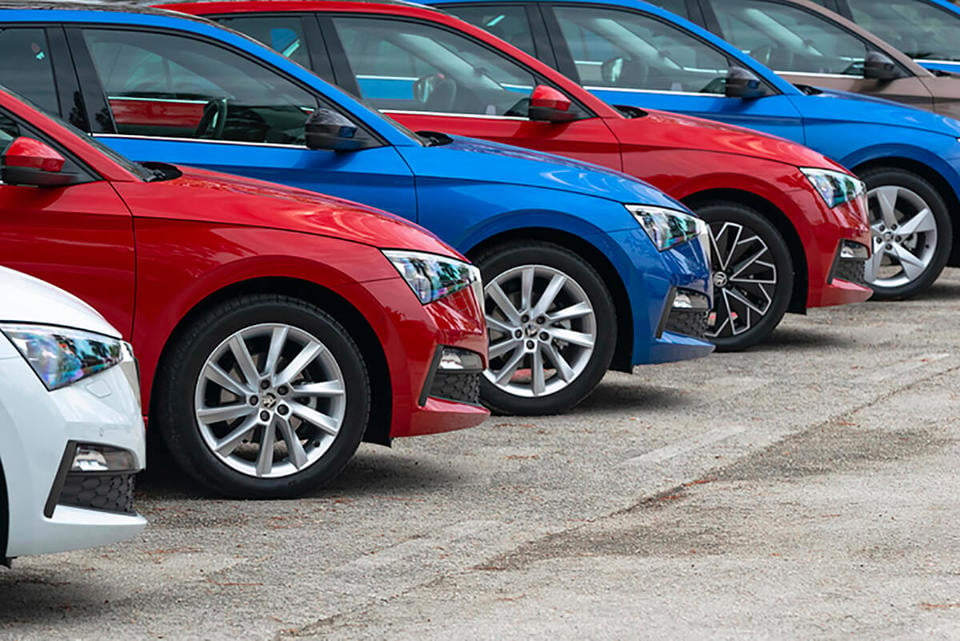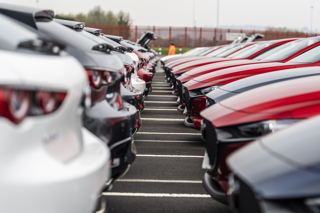Manufacturers have been accused of profiteering from the shortage of new cars and vans as demand continues to outstrip supply.
Fleets are facing long lead times, price rises and, in some cases, having to order vehicles without knowing what they will cost when they are delivered.
Steep and frequent price rises for new vehicles, compounded by the rapid step-up of interest rates, are forcing constant reviews of lease rentals, according to the British Vehicle Rental and Leasing Association (BVRLA).
It says the manufacturers’ absence of price protection after an order has been placed is leading to uncomfortable conversations with customers about raising rentals before a vehicle is delivered.
BVRLA chief executive Gerry Keaney said: “Vehicle supply remains the number one issue. The lack of price protection from vehicle manufacturers is being compounded by delivery times extending.
“Leasing companies are often unable to give their customers accurate costs before tyres have hit the Tarmac.”
FLEETS WANT TRANSPARENCY
During December’s Fleet News at 10 webinar Duncan Webb, head of fleet and travel for ISS in the UK and Ireland, described the lack of price protection as a “worrying trend”.
“It’s not as if you’d go into a shop and say, ‘I'll have that in nine months and you can charge me what you feel like’,” he said.
Fleets have also reported that old orders, agreed before a price rise had been introduced, are being delayed or cancelled, whereas vehicles ordered after the increase are being delivered. “We know the market is in a bad situation – everybody appreciates that,” said Matt Hammond, head of fleet at Altrad Services.
“We’re changing our expectations; we’re changing our lead times and understand this is where we’ve got to be. But this is going to stick in people’s memories for a long, long time.
“We’re being told to order stuff without being given the price and we’re getting used to seeing orders cancelled at the eleventh hour.
“We’ve all got to take the pain together and, if the manufacturer is trying to earn a fast buck out of it, in the long run, they’re going to suffer.”
Hammond is calling for more honesty from manufacturers. “If you haven’t got it in, you haven’t got in, let’s be fair, let’s be open,” he said.
“I’d rather a supplier say to me that he can’t do it, or this is the price and give me that option. Don’t get me on a hook and six months down the line and then we’re in a position where we’re having to pay another 20% for a chassis.”
Chris Conners head of facilities and fleet at Countryside Properties, also wants transparency from manufacturers. He said: “If it’s explained and evidenced as to why costs change, then we can get our heads around it. But, at the moment, it feels like that’s not the case; it feels like it’s going to the highest bidder… and that’s why we will have short memories around how we’re treated.
“For me, it is about understanding and working together in what are difficult times for everyone.”
MANUFACTURERS DEFEND ACTIONS
Stellantis, parent company of brands including Citroën, Fiat, Peugeot and Vauxhall, was accused recently of trying to “force the market” with pre-registrations, despite an inability to deliver on customers’ new vehicle orders..
Stellantis UK group managing director Paul Willcox said the situation was the result of efforts to portray the UK as a “low stock market” in order to guarantee a greater volume of the OEM’s manufacturing output.
One Stellantis franchisee said: “If Stellantis was just able to let people know when its cars would come then the issue might be lessened, but most are being left in the dark.
“The truth is that Stellantis is trying to force the market in order to get registrations at a time when it cannot deliver cars.”
A spokesperson for Stellantis said: “Vehicle production continues to be constrained due to Covid and component shortages across the industry.
“The consequence for our customers is that they have long waiting times and delivery date accuracy slipping.
“Facing this situation, we have taken various actions to ensure that customer orders are fulfilled as quickly as possible focusing on ‘first come, first served’.
“Our focus has been to support these customers by increasing supply and pulling volume through the network at a faster rate.”
‘NOT ABOUT PROFITEERING’
Kia, meanwhile, has denied that removal of its price protection has been driven by profiteering.
Kia's sales director Steve Hicks explained that the manufacturer had reviewed its price protection policy because it was faced with “massively long lead times” on battery electric vehicles (BEVs), with very high inflation on some of the battery costs.
However, he said: “We did it not to try to make more money out of the cars, but just to protect the margin that we had in them.
“Previously, we could do it because cars were taking three months to come through, inflation in terms of components was fairly small, so we could stand that risk. With the market as it was in terms of supply, we couldn’t continue to do that.”
Hicks acknowledged that some fleets and leasing companies have found the removal of price protection “difficult” to come to terms with.
As a result, Kia reinstated price protection on all vehicles apart from its BEVs.
“We feel we still have a significant risk there, due to long lead times and high inflation,” he added. “When we took the price protection away, it wasn’t that we were profiteering, it was simply protecting what we had and, as soon as we can redo the whole piece, we will go back to full price protection on everything.”
The removal of price protection by manufacturers has meant that, particularly for salary sacrifice customers, their vehicles have been removed from some choice lists.
“Generally speaking, it’s been really damaging for the manufacturers on fleet,” said Nick Jones, strategic relationships manager at Novuna Vehicle Solutions.
Novuna is analysing lead times constantly and sending updates to its corporate customers on a weekly basis.
The average lead time being quoted by the leasing company for fully electric cars is currently around 34 weeks (29 for plug-in hybrids).
Almost three-quarters (73%) of Novuna’s order book is for pure EVs.
SLIPPAGE DELAYS
Liam James, corporate business development manager at Novuna, explained that, while it looked like BEVs have a longer lead time than PHEVs, it also measures the “slippage delay” in its vehicle orders.
“That’s more telling,” he said. “What we’re finding is that EVs have an average slippage time of 43 days, whereas plug-in hybrids have been 61 days. So, where a plug-in hybrid looks like it has a shorter lead time, it’s actually taking longer to turn up.”
Commercial vehicle waiting times, he says, are being harder hit than cars, with nine-to-12 months the norm for a lot of manufacturers.
While Alphabet says it has seen some improvement in lead times, a return to more typical availability is not on the horizon just yet.
“Estimated delivery dates still vary widely dependent on manufacturer, model, specification and demand,” explained Caroline Sandall-Mansergh, consultancy and channels development manager at Alphabet.
“We’re currently seeing an average lead time of around six-to-eight months; encouragingly some manufacturers are quoting three-to-six months for certain models while others are advising of a longer wait, notably for PHEV and BEV.
“The availability for LCVs is made more challenging due to excessive order banks, model restrictions and the added complexity of conversion requirements.”
Arval said there has been a bigger impact on van availability than cars and it is also seeing manufacturers prioritise electric van production.
Joel Lund, commercial director at Arval UK, said: “As with cars, planning ahead remains imperative and we are advising van operators to order around 12 months in advance of replacement vehicles being needed.”

SUPPORTING CUSTOMERS
Sandall-Mansergh says that to account for the ongoing uncertainty and disruption, it is crucial that leasing providers keep working closely with customers to ensure they are planning as far in advance – and with as much flexibility – as possible.
“We have been supporting customers with policy reviews and exploring alternative vehicle options to minimise the impact of vehicles falling out of band or not being available in time, for example,” she said.
“We’ve also taken a flexible approach to contracts, offering extensions and mileage adjustments to accommodate longer lead times for new stock, as well as providing lead-in rental vehicles to help keep customers moving and reduce unexpected downtime.”
Arval UK is currently advising customers to consider ordering new vehicles up to 12 months ahead of their existing leases ending.
However, Lund told Fleet News, it is a “continually evolving situation”. “Where we have had great success is with a campaign-based approach,” he said.
“We bulk-buy specific models – generally EVs – before an order is placed by a customer, which helps us to absorb lead time delays as vehicles are sent from our stock rather than direct from the manufacturer.”
These campaign vehicles fit in perfectly where fleets can be flexible about the cars they operate or by making appropriate revisions to their choice lists to further circumvent shortages.
“The vehicles have also proven especially popular within our salary sacrifice product,” he added.
“Additionally, once an order for a vehicle has been made, we’re encouraging customers to keep it in place even if the driver’s situation changes.
“In most circumstances, it is better to reallocate it to another employee or use it as a pool car rather than cancel.”
SECOND-LIFE LEASES
Novuna has pre-ordered cars to give customers a solution to long lead times, which, it says, have proved successful for some fleets.
It has also been repurposing some of its commercial vehicles at defleet and re-leasing those vehicles on a short-term, no-commitment basis to fill gaps for some customers.
“That’s really worked well for some of our clients who have forward ordered batches of commercial vehicles and have been able to utilise our returning vehicles in the interim,” explained James.
To date, second-life lease volumes remain extremely low – just 2.7% of new business contract hire agreements for cars and 5% for vans, and 3% for consumer cars – according to the BVRLA.
They have been driven largely by the shortage of new vehicles. But, as residual values gradually drop to more normal levels, leasing companies say the price advantage of second-hand leasing rentals will become more attractive.
























Login to comment
Comments
No comments have been made yet.